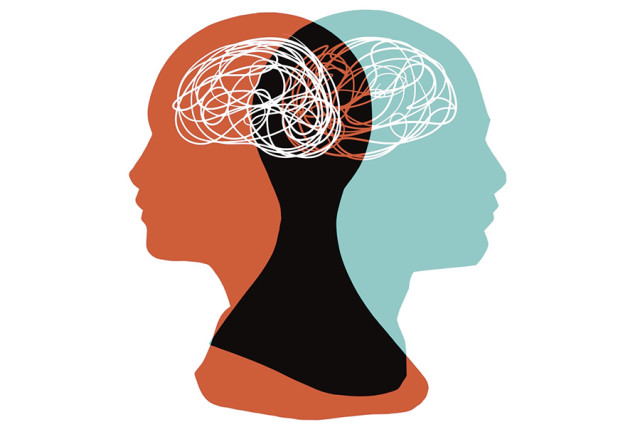By Omodara Abiodun and Bassey Benedicta
The 2024 Mental Health awareness day with the theme, ‘Mental Health is a universal Human Right’ often focuses on specific aspects of mental health to raise awareness and inspire action.
One such individual is Sintiat, a 300 level at the faculty of Management Science, Lagos State University who bravely shares her journey through mental health struggles. For years, she battled anxiety and depression silently, feeling ashamed and alone. It wasn't until she reached a breaking point that she sought help and started her path to healing.
"I used to think I had to be strong and handle everything on my own. I didn't realize that asking for help is a sign of strength, not weakness," Sintiat reflects.
Sintiat's story is just one of many, highlighting the importance of ending the stigma around mental health.
The fear of being judged or misunderstood prevents individuals from seeking the help they need. But when we open up about our struggles, we create a safe space for others to do the same.
Dr. Patel Vincent, a psychiatrist consultant at Graceville Clinic, a Private Hospital, Iganmu Lagos, emphasizes the importance of early intervention and destigmatizing mental health.
Community Involvement
Communities are beginning to take steps towards creating a more inclusive environment for mental health. Schools are implementing mental health education programs, workplaces are offering mental health resources, and support groups are forming to provide a sense of community for those struggling with mental health issues.
Mental health awareness campaigns are also gaining momentum, with social media platforms being used as a tool to amplify voices and spread messages of hope and support. Hashtags like #BreakTheStigma and #YouAreNotAlone are empowering individuals to share their stories and connect with others who may be going through similar struggles.
Challenges of Mental Health
The road to mental health awareness and acceptance is not without its challenges. There are still barriers to accessing mental health care, including cost, availability, and societal attitudes. But advocates are working tirelessly to break down these barriers and ensure that everyone has access to the support they deserve.
Through advocacy, education, and personal stories, the narrative around mental health is slowly shifting. It is no longer a topic to be whispered about in hushed tones but a conversation that deserves to be had openly and compassionately.
As Sintiat reflects on her journey, she acknowledges the progress she has made and the importance of speaking out.
"I never thought I would be where I am today, feeling hopeful and empowered. It was hard to take that first step, but reaching out for help was the best decision I ever made," she says.
Causes of Mental Health
A Specialist of Special Education from the University of Uyo, Akwa Ibom State, Emmanuel Eyo, has linked mental illness to financial instability, inflation and unemployment.
The expert defined mental stress as a form of stress that occurs because of how an event in one’s external and internal environment are perceived, resulting in the psychological experience of distress and anxiety.
He, however, identified symptoms such as irritable, impatient behavioural display, inability to enjoy oneself, depression and loss of sense of humour and interest in life as manifested in people living with mental stress.
“Bereavement, divorce or separation, losing a job or unexpected money problem (inability to meet up financial needs) can lead to mental health,” the expert added.
According to him, “Financial instability, inflation, and unemployment the country is facing, contributes significantly to the psychological burden experienced by many Nigerians. There are noticeable increases in individuals with symptoms of depression and anxiety directly linked to their financial hardships.
“The economic downturn in the country has created a breeding ground for stress anxiety and depression among individuals. You will agree with that, the cost of living affect all areas of life and, it might be difficult to seek for daily shelter by some individuals. A lot of people are worried and frustrated and have become irritable,” he added.
The Special Education Specialist, however underscored the need for family harmony, saying that, major breakup and divorces rate in the country could be attributed to mental stress or illness.
He said, “Noticeable marital disharmony as a result of economic problem people are passing through, will eventually affects mental health. From research, individuals facing financial strain are at heightened risk of developing mood disorder, substance abuse issues, and suicidal ideation.
The specialist however called for immediate intervention of mental illness, which according to him, could lead to suicidal thoughts that could pose the victim to danger, and urged the government and relevant agencies and even organisation bosses to carter for the well-beings of their employees and Nigerians at large.
He said, “There is need for an immediate intervention to prevent further escalation of mental health. The government, bosses, should understand that if the well-being of humans are not properly manage, it causes mental illness. Government must put inflation to check and also increase the living wage of workers as well as tackling unemployment by creating jobs for the unemployed in the country.”
Managing Mental Health Challenges
Mr Eyo said, “People with mental health disorders should find a distraction; it could be a good relationship or something you engage in that gives you joy. Distraction can help you forget what is troubling you.
“Always believe in the big picture ahead. Acknowledge your efforts and success. Embrace your fears, and have faith for better days ahead, then live in the moment. Ask for help; if after trying other options and yet can't get through it; seek professionals’ aid from doctors.
“Eat healthily and stay away from health toxicity habits like drinking, smoking etc. Exercise and take time out with friends and families. Don't be too hard on yourself. Try and be around families and friends, could help fight mental illness,” he added.
He called for more awareness to counter stigmatisation with mental health patients in the country and the world at large.




















